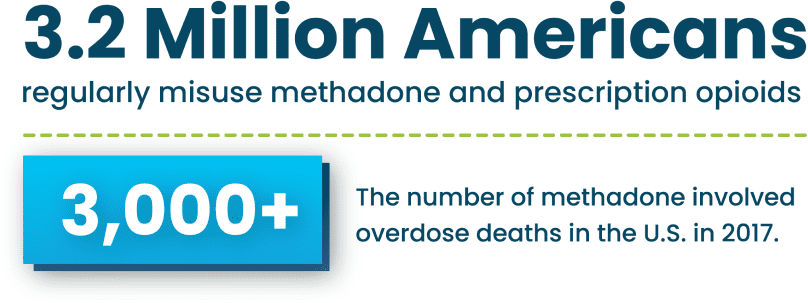Sedatives are medicines that help calm or relax a person. Doctors often use them to induce sedation, which is a state of reduced anxiety or agitation. In various cases, sedatives are used for general anesthesia during major surgeries. Pharmacists provide sedatives such as opioids to patients after medical procedures or surgeries to help them overcome chronic pain.
However, it’s important to use them carefully, as they can lead teens to drug abuse, requiring holistic treatment. Doctors closely monitor the use of sedatives to ensure the safety of patients.
Key Takeaways
Sedatives, used responsibly, ease anxiety and discomfort, but misuse can lead to addiction and risks. Here’s what you need to know:
- In the past, sedatives were used for pain relief and calming effects through GABA enhancement.
- Doctors use sedatives during surgical procedures and prescribe them to treat sleep disorders.
- Misusing sedatives recreationally is risky, leading to dependence and cognitive issues, requiring professional help.
Is your teen struggling with addiction? Reach out for help today at our teen treatment center. Call us today at (845) 479-6888.
History of Sedative Use

Sedative drugs, like benzodiazepines, have a long history in medicine. They affect the central nervous system, making people feel calm or relaxed. Throughout history, sedatives have been used for various purposes, including pain relief and deep sedation during medical procedures.
Many sedatives enhance the effects of a neurotransmitter called gamma-aminobutyric acid (GABA) in the body, leading to calming effects. Benzodiazepines, among the most commonly prescribed sedatives, became popular for their similar effects. They are often used not only for anxiety but also in pain management. Today, sedatives play a crucial role in medical treatments, helping patients manage stress and anxiety during various procedures.
Medical Use of Sedatives
Sedative medications, commonly known as sedatives, are widely used in the medical field to address various conditions. These medications include barbiturates, benzodiazepines like Valium, and newer options such as z-drugs, known as sedative-hypnotics.
Sedatives, including medications like diazepam and Valium, play a crucial role in medical procedures. Anesthesiologists use short-acting benzodiazepines to induce conscious sedation before surgery, ensuring the comfort of individuals undergoing various medical interventions.
In various medical scenarios, sedatives like Propofol are administered intravenously, bypassing the blood-brain barrier to induce anesthesia. Understanding the specific needs of patients and the appropriate use of sedatives is vital for healthcare providers to ensure safe and effective outcomes.
In treating sleep disorders, healthcare providers often prescribe sedative-hypnotics, commonly known as sleep medications. Z-drugs, a class of sedatives, are frequently used to promote sleep and address insomnia. These medications act on the central nervous system, aiding individuals in a restful night’s sleep.
Sedatives, often associated with treating human conditions, also find application in veterinary medicine. Veterinarians use sedatives to calm and relax animals during medical procedures or examinations.
Small doses help manage anxiety, ensuring the safety of both the animal and the veterinary staff. Sedatives, including certain analgesics, may also be utilized for pain relief, such as in the case of a broken bone or other injuries.
Prescription drugs, mainly Xanax, are employed to manage anxiety disorders. These sedatives act on the brain’s GABA receptors and release serotonin, which produces a calming effect. However, it’s essential to use them cautiously to avoid sedative misuse and the development of substance use disorders.
For medical conditions like seizures and epilepsy, certain sedative medications, including barbiturates, may be prescribed. These medications help control abnormal electrical activity in the brain, preventing seizures. Careful monitoring is crucial to ensure effective treatment while minimizing the risk of respiratory depression.
Illicit Drug Use in Unregulated Settings
Sedatives, a class of medications known for their calming effects, are unfortunately sometimes misused in unregulated recreational settings. This misuse can lead to significant levels of physiological dependence and substance use disorders.
In pursuit of a desired effect, some individuals may consume sedatives in higher doses than prescribed. That can result in adverse outcomes, impacting cognitive functions and leading to withdrawal symptoms when usage is discontinued.
The non-medical use of sedatives may also involve their interaction with illicit drugs. This dangerous combination with alcoholic beverages can amplify the sedative effects and pose severe risks to individuals, affecting their overall well-being.
Sedatives, designed for specific medical purposes like local anesthesia or the treatment of insomnia, should only be used under the guidance of healthcare providers. It is crucial for parents to explain addiction to young adults and to seek professional help if they experience any signs of a substance use disorder.
Side Effects and Risks of Sedatives
Sedatives, designed to calm or relax individuals, play a vital role in medical practices. While beneficial when used responsibly, understanding their effects, potential risks, and dangers for overdose is essential.
Common sedatives, including mild sedatives and short-acting benzodiazepines, can have possible side effects that individuals should be aware of. These may include headaches, muscle spasms, and changes in heart rate. Additionally, sedatives like antihistamines can cause drowsiness and impact overall brain activity.
Using sedatives for an extended period may lead to physical dependence, where the body relies on the substance to function normally. This dependence can increase the risk of abuse, especially with substances like Fentanyl or barbiturates.
A person will find it difficult to perform daily tasks without using drugs. Individuals must use sedatives as prescribed and under the guidance of healthcare providers to minimize the risk of developing a substance use disorder.

Taking higher doses or combining sedatives with other substances, such as alcohol with benzodiazepines, can lead to overdose dangers. Barbiturate overdose, for example, can have fatal consequences, impacting oxygen levels in the body and causing hallucinations. Long-term use of sedatives, especially in unsupervised settings, poses significant health risks.
Individuals undergoing minor surgery or recovering from an injury should communicate openly with their healthcare providers about any sedative medications to ensure safe usage. Being informed about the potential side effects and risks associated with sedatives is essential for making informed decisions about their use in various medical situations.
Guidelines for Safe Use
Using sedatives safely is crucial to ensure optimal outcomes and minimize potential risks. Adhere strictly to the dosage recommended by healthcare providers. Teens must steer clear of alcohol or other substances to prevent dangerous interactions. Inform healthcare providers about existing medical conditions and medications for personalized care.
Ensure honest communication with your healthcare team to evaluate sedative effectiveness and promptly address concerns. Moreover, refrain from self-prescribing or exceeding recommended doses to prevent adverse effects.
Be attentive to any side effects and report them promptly to your doctors for timely intervention. It is vital to stay informed about the purpose of sedatives, potential risks, and usage guidelines to make informed decisions. Know the emergency protocol in case of accidental overdose or adverse reactions, and seek immediate medical attention if needed.
When is the Right Time to Ask for Help?
If you or someone you know is struggling with addiction, it’s important to seek help. When daily life feels hard due to substance use, or if you can’t control it, it’s time to ask for support. If you find yourself thinking about drugs or alcohol all the time, it’s a sign.
Seek help if your relationships and work are affected. Talk to someone if you can’t stop, even if you want to. Support comes in many forms, like counseling (CBT), residential rehab and detox to remove harmful substances, and aftercare programs to keep you strong after treatment. Asking for help is a brave step towards a healthier life.
Frequently Asked Questions (FAQ)
What do they prescribe sedatives for?
Sedatives are prescribed to help people feel calm or relaxed. Doctors use them before surgeries or medical procedures to make patients more comfortable. They can also be given to manage anxiety or sleep disorders. Sedatives work on the brain to slow down activity, bringing a sense of calmness.
Why do doctors prescribe sedatives?
Doctors prescribe sedatives to achieve specific medical goals. They use them to induce relaxation before surgeries, manage anxiety, or treat sleep disorders. Sedatives are carefully chosen based on the patient’s needs and medical conditions.
What is the function of sedative drugs?
Sedative drugs function by affecting the central nervous system, particularly a neurotransmitter called gamma-aminobutyric acid (GABA). This interaction slows down brain activity, leading to a calming effect. The primary goal is to induce sedation, making individuals feel more at ease and relaxed, whether for medical procedures or to manage conditions like anxiety and insomnia.
Pave Your Path Towards Sobriety
Sedatives play a vital role in the world of medicine. However, like any other drugs, they carry a risk of addiction if misused for a long time. If you or your loved one is dealing with sedative addiction, then reach out to our teen treatment center.
Our residential rehab offers tailored treatment, including therapies and counseling programs. We provide a safe haven for your teens to recover.We are looking forward to becoming part of your recovery journey. Call us today at (845) 479-6888 for more information about our services.

